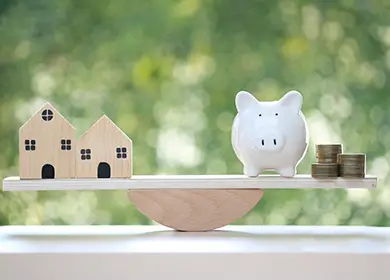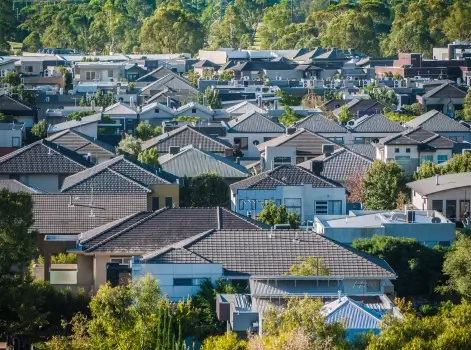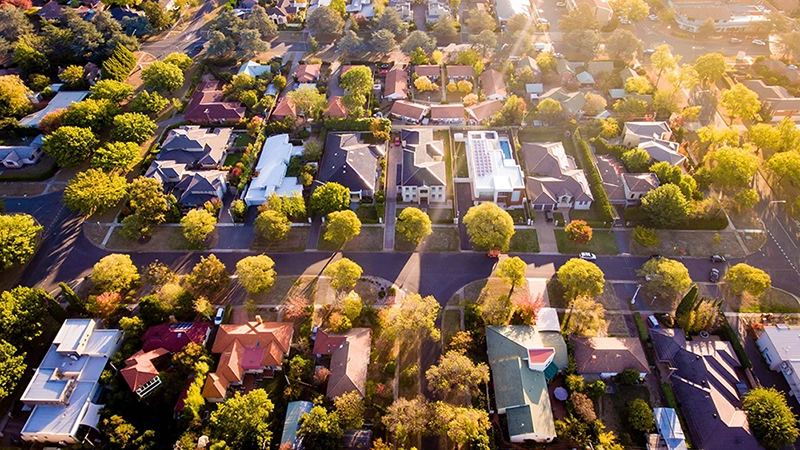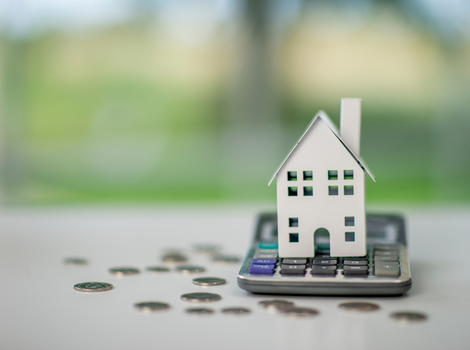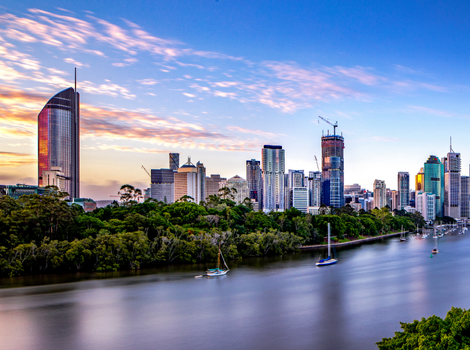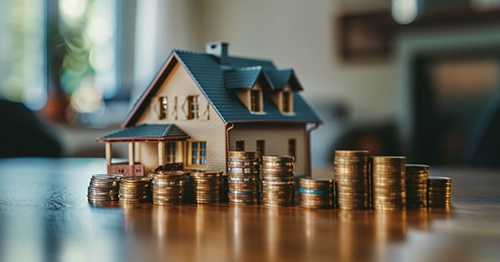Updated: 29 May, 2025
Table of Contents
Are you dreaming of someday owning a home of your own?
If you’ve never bought a property before, there are some questions you should answer before you actually get down to buying one. Here are 5 questions that can help you plan out how to buy a property in Australia.
What type of property do you need and where will you live?
Choosing a property to live in isn’t a choice you should make hastily and it’s all about “location, location, location” as the media would like to have us believe. Before you make your choice, consider the following:
- Are there any infrastructure projects going on around where you want to buy?
Have a good look in and around where you want to buy your residential property. Infrastructure projects such as transport (extension of rails, bus transit roads, etc.) or job creation projects (mining, airports, etc.) in the area can lead to higher property prices. - Do you want to value the property yourself or get an upfront property valuation report?
A valuation report is an assessment of the property you want to buy to determine its value. Generally, your mortgage broker can get you an upfront property valuation report within 3 to 4 working days. You can also value the property yourself but note that many banks and lenders won’t use the valuation. - Have you considered the type of the residential property you’re buying?
A lender’s decision is affected by whether or not a property can be readily sold. For example, many lenders are conservative when it comes to flood-zoned or bushfire affected properties. - Is the postcode of the location of the property on the bank’s restricted list?
Almost all major Australian banks and lenders have their own location guide or a postcode list they use to determine the maximum loan amount and lending policy for each area. The ‘restricted list’ includes high risk locations, e.g. high density areas or inner city suburbs. However, this may vary from lender to lender. - Has the residential property been inspected?
Ask your conveyancer regarding this. You can negotiate a better price for the property if any significant problems like plumbing or floorboard issues pop up.
Once you’ve got an idea of where you’d like to live and what type of property best suits your needs and lifestyle, what next?
Well, no matter whether you’re buying directly from a vendor or you’re attending an auction, you shouldn’t put a deposit down until you’ve secured a reliable pre-approval on your home loan.
For auctions specifically, you’ll have more confidence as a bidder and you’ll also have set a bidding limit depending on how much you’re approved to borrow.
Have you contacted a mortgage broker?
Although not entirely necessary, this is one option without which you could have a tougher time in buying a home.
Unless you’re buying the property with cash, there are many reasons why organising a mortgage broker is helpful in long-run.
Not only do brokers teach you how to buy, they also have a number of lenders to choose from and tend to have strong lender relationships to get you a great home loan deal.
Not only do brokers teach you how to buy, they also have a number of lenders to choose from and tend to have strong lender relationships to get you a great home loan deal.
You can take advantage of their wealth of knowledge and experience and the best part is that their services are completely free in most cases!
In addition to a good broker, Home Loan Experts senior mortgage brokers recommend that first home buyers look for a qualified conveyancer.
A conveyancer or solicitor is a licensed professional who looks into the legal side of things when it comes to buying a home, including the contract of sale and ensuring that there’s good title on the property.
If you don’t know any good conveyancers, we have a list of recommended conveyancers that can help you buy the residential property you have your eyes on.
Do you want help planning to buy a property?
Not only can we help you plan to buy a residential property, we can also guide you through the entire home loan process up to settlement and even support you beyond this with regular mortgage check ups.
Fill in our free assessment form or call us on 1300 889 743 and discuss your situation with us today.
Have you checked if you qualify for a First Home Owners Grant?
If you’re buying a house for the first time, check whether you’re eligible for a First Home Owners Grant (FHOG). This is a one off grant that’s paid to first home owners who can meet particular requirements.
Each state has their own grant but, as a general rule, you’ll have to meet the following eligibility criteria for a FHOG:
- Each applicant must be a natural person and not a company or trust.
- At least one applicant has to be a Permanent Resident or an Australian citizen.
- All applicants must be at least 18 years old.
- At least one applicant will be occupying the home as their primary place of residence for a continuous period of at least 6 months, starting within 12 months of settlement or construction of the home.
It’s recommended that you contact your state government to confirm and discover all of the criteria for your state as the requirements may differ.
The grant requirements can also vary depending on whether you’re buying a new or established home, you’re buying vacant land and building a property or the purchase price.
A mortgage broker can help answer these questions and also assist you in completing the grant application form and follow up with the lender to make sure your grant is approved and paid promptly.
Have you worked out your expenses for purchasing a property?
Just in case you didn’t know, there are a few expenses other than the interest on your home loan when it comes to purchasing real estate.
These ‘extra costs’ will usually need to be paid upfront:
- Lender’s fees: Be sure to find out the costs involved with your mortgage before you sign up with a lender because they won’t be the same for all lenders.
- Property valuation fees: Property valuation fees will vary from lender to lender. Generally, they won’t exceed $300 and in some cases, you may get the valuation done free of cost. You can also get an independent valuation done for a more detailed report but it will cost you anywhere from $50 to $300 in most cases.
- Stamp duty: This is a tax charged by state governments on the purchase price of a property. It will vary from state to state but on average it costs about 3% to 5% of the property value.
- Registration of transfer fees: These fees cover the registration of your property ownership with the relevant state office and will vary from state to state.
- Inspection costs: Depending on whether you have building and pest inspections undertaken and the extent to which they’re required, these costs will vary.
- Legal fees / conveyancing fees: You can ask your solicitor or conveyancer about the fees they’ll charge you to manage the conveyancing costs required for your new property.
- Lenders mortgage insurance (LMI): When borrowing over 80% of the property value, most lenders will charge you what is known as LMI to ensure that they’re covered if you default on your mortgage repayments. The cost of LMI will vary depending on your lender and their requirements. There are even ways to avoid this cost completely.
- Council rates: You’ll need to pay rates to your local council. These vary from council to council and state to state.
Have you prepared yourself to apply for a home loan?
Apply for a home loan, get approved, get the money and buy your home. Now if it were only that simple!
Australian banks and lenders reject hundreds of applications all the time because the applicants either weren’t actually ready to take out a mortgage or they didn’t seem ready to the credit department.
Before you apply for a home loan, make sure you’ve got the following sorted out:
- Home loan documents: When assessing a home loan application, banks tend to be very particular about the documents provided. You’ll need to provide income evidence like payslips, tax returns or a letter from your employer.
In some cases, you may also need an accountant’s letter, gift letter or any other documents depending on your situation and your deposit.
- Good credit history: Most banks hesitate to finance bad credit applicants. Have you been paying your bills and debts on time for at least 6 months and do you have any black marks on your credit file due to defaults? Just one missed payment on an electricity or water bill can see your application declined.
Paul said that around 15-20% of the first home buyers that he’s assisted had a bad credit history.
If you’re in a similar situation or if you can’t provide all of the traditional documents for a home loan application, then a specialist lender may be able to help you.
- Genuine savings: In most cases, you’ll need at least 5% in so-called genuine savings when borrowing more than 80% of the property value. Most banks typically consider genuine savings as money that you’ve saved over a period of time, usually at least three months. In addition, you’ll need to have a good income.
If you don’t have a deposit at all then you can borrow the full costs of buying a home without a deposit by taking out a guarantor home loan.
Ready to buy your dream home?
Call us on 1300 889 743 or complete our free assessment form and one of our specialist mortgage brokers can help you qualify for the right home loan for your needs as well as provide resources and guidance on the entire home buying process.
